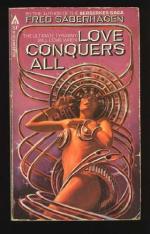“Conceit I consider a foolish thing; but more foolish still is that false modesty that vainly attempts to conceal that which all facts tend to prove.”
It is this straining to overcome a foolish, false modesty which leads him to say, in connection with his matches with members of the Manhattan Chess Club. “As one by one I mowed them down without the loss of a single game, my superiority became apparent.” Or, in speaking of his “endings” (a term we chess experts use to designate the last part of our game), to murmur modestly: “The endings I already played very well, and to my mind had attained the high standard for which they were in the future to be well known.” Mr. Capablanca will have to watch that false modesty of his. It will get him into trouble some day.
Although this column makes no pretense of carrying sporting news, it seems only right to print a part of the running story of the big game between Capablanca and Dr. O.S. Bernstein in the San Sebastian tournament of 1911. Capablanca wore the white, while Dr. Bernstein upheld the honor of the black.
The tense moment of the game had been reached. Capablanca has the ball on Dr. Bernstein’s 3-yard line on the second down, with a minute and a half to play. The stands are wild. Cries of “Hold ’em, Bernstein!” and “Touchdown, Capablanca!” ring out on the frosty November air.
Brave voices are singing the fighting song entitled “Capablanca’s Day” which runs as follows:
“Oh, sweep, sweep across the board,
With your castles, queens, and pawns;
We are with you, all Havana’s horde,
Till the sun of victory dawns;
Then it’s fight, fight, FIGHT!
To your last white knight,
For the truth must win alway,
And our hearts beat true
Old “J.R.” for you
On Capa-blanca’s Day.”
“Up to this point the game had proceeded along the lines generally recommended by the masters,” writes Capablanca. “The last move, however, is a slight deviation from the regular course, which brings this Knight back to B in order to leave open the diagonal for the Q, and besides is more in accordance with the defensive nature of the game. Much more could be said as to the reasons that make Kt — B the preferred move of most masters.... Of course, lest there be some misapprehension, let me state that the move Kt — B is made in conjunction with K R — K, which comes first.”
It is lucky that Mr. Casablanca made that explanation, for I was being seized with just that misapprehension which he feared. (Mr. Capablanca, I mean.)
Below is the box-score by innings:
1. P — K4. P — K4. 2. Kt — QB3. Kt — QB3. 3. P — B4. P x P. 4. Kt — B3. P — K Kt4.
(Game called on account of darkness.)
XXXVIII
“RIP VAN WINKLE”
After all, there is nothing like a good folk-opera for wholesome fun, and the boy who can turn out a rollicking folk-opera for old and young is Percy MacKaye. His latest is a riot from start to finish. You can buy it in book form, published by Knopf. Just ask for “Rip Van Winkle” and spend the evening falling out of your chair. (You wake up just as soon as you fall and are all ready again for a fresh start.)




